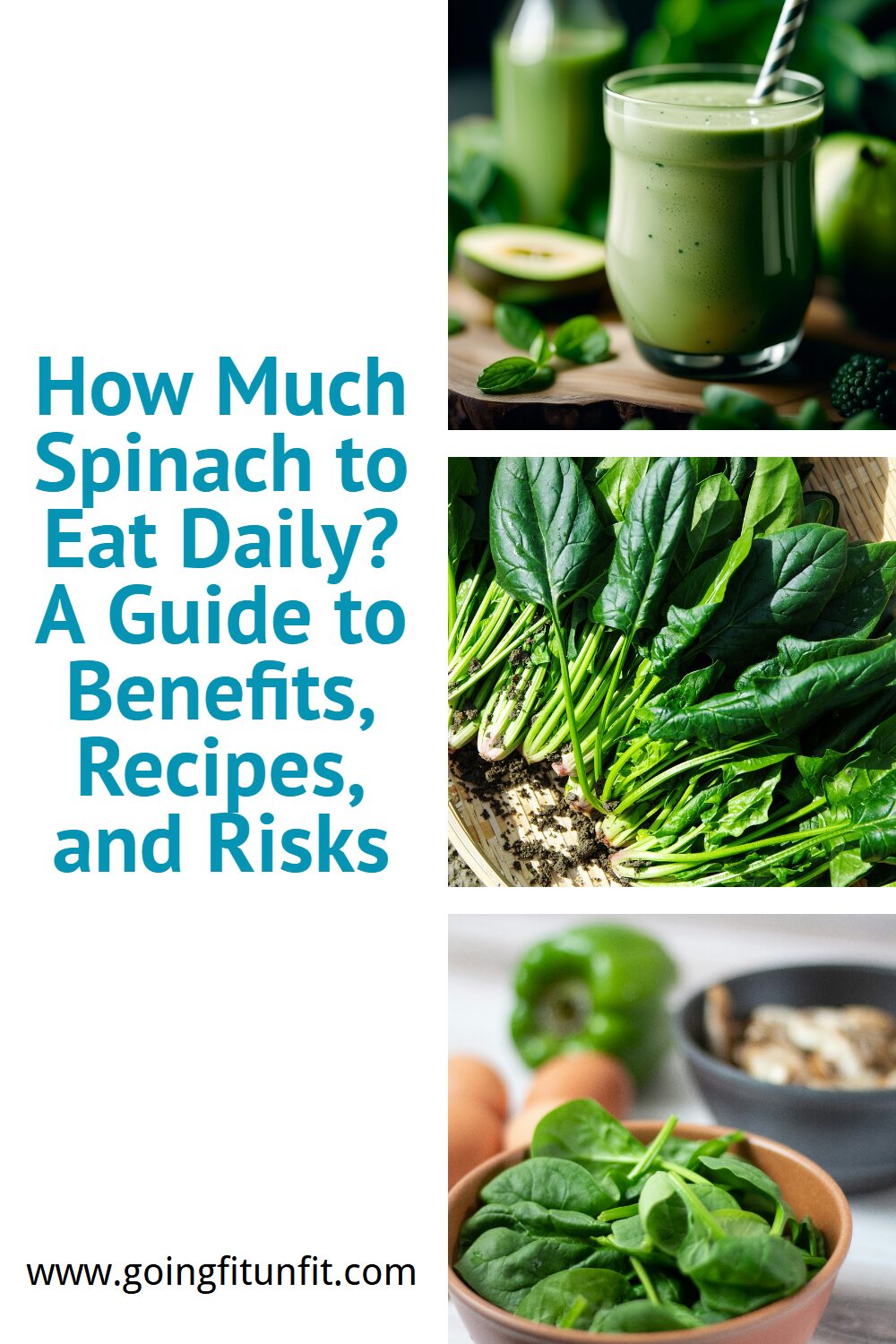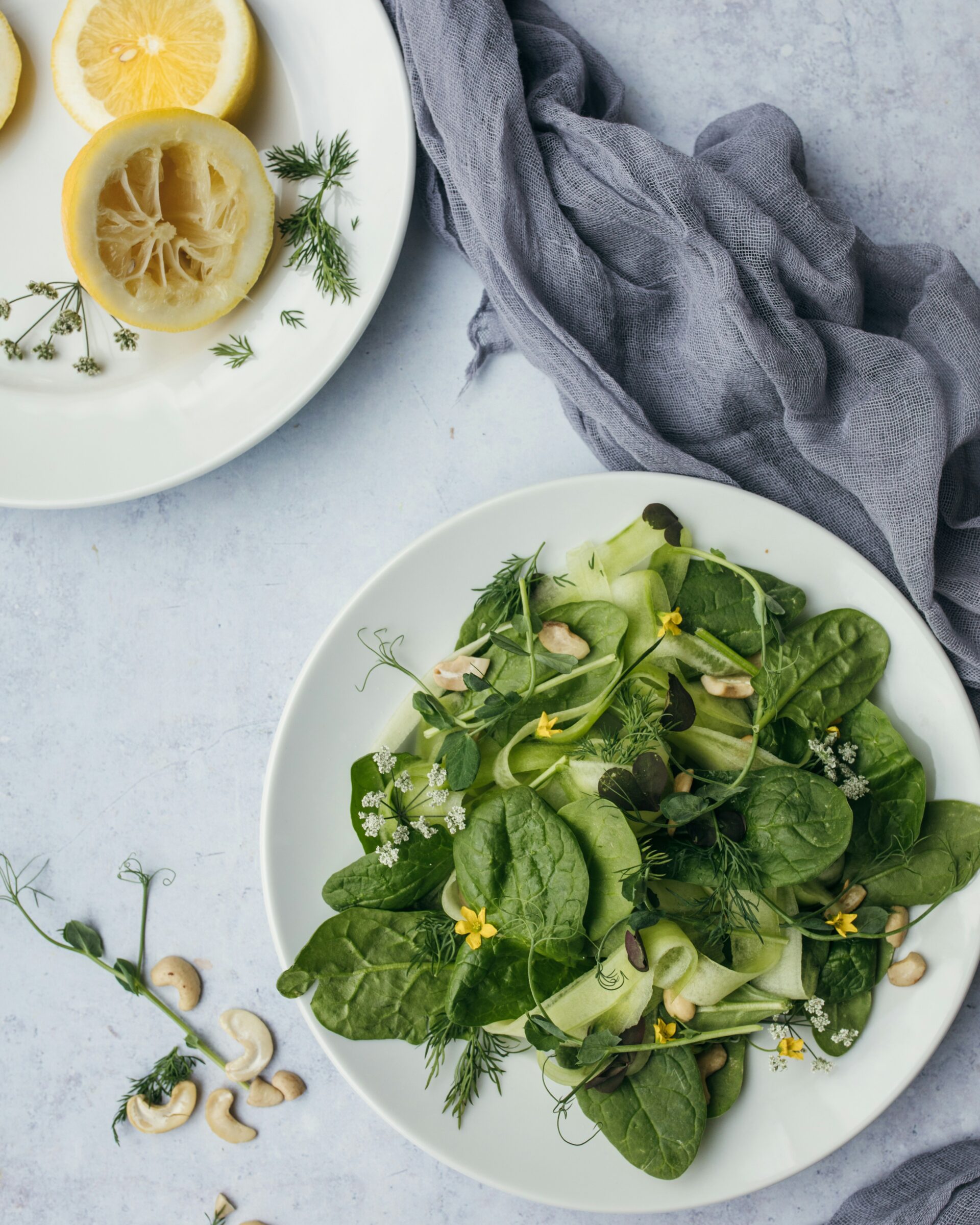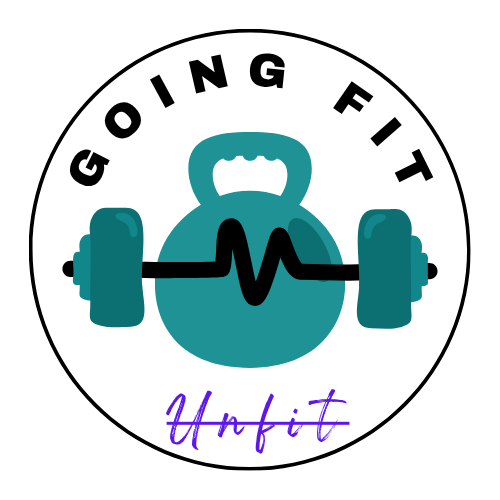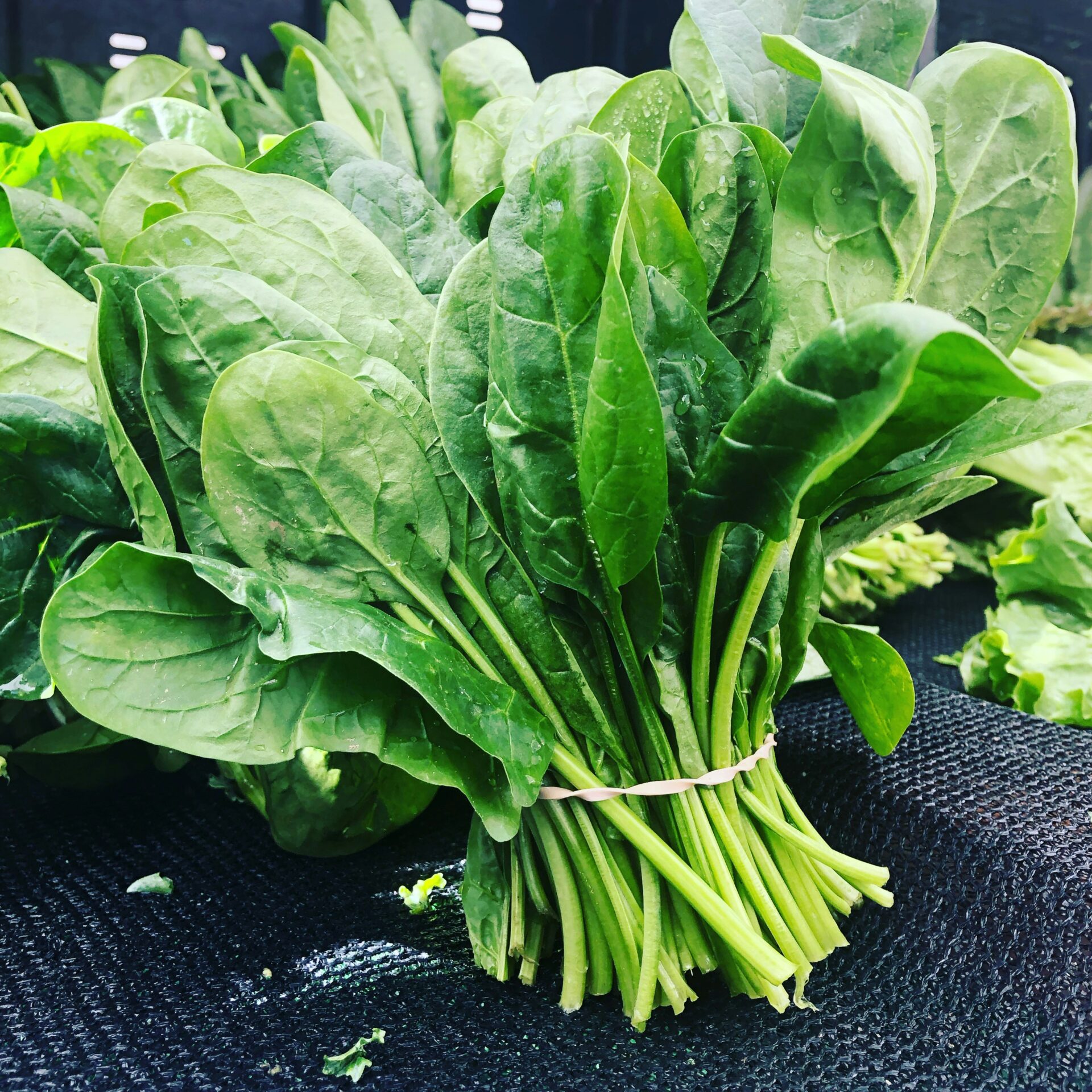
Spinach is one of those superfoods that makes you feel like you’re doing something great for your body every time you eat it. But how much spinach to eat daily?
Let’s dive into the details, including spinach’s nutritional profile, its benefits, recipe ideas to keep it exciting, and a few things to watch out for if you’re eating it every day. Think of this as a friendly guide to navigating the world of spinach.
How Much Spinach Should You Eat?
For the average person, eating 1-1.5 cups of prepared spinach or 2-3 cups of fresh spinach per day is a good target. This amount provides plenty of nutrients without overdoing it. However, your specific needs might vary based on your overall diet, health goals, and any medical conditions you might have. If you’re wondering, “How much spinach to eat daily?” this guide has you covered.
Spinach is nutrient-dense, meaning it packs a ton of vitamins and minerals into a low-calorie package. It’s rich in vitamin K, vitamin A, folate, iron, and magnesium, making it a great addition to your meals. This daily spinach intake guide will help you make the most of this superfood.
Spinach Nutrition Facts
Here’s what you’ll find in one cup of raw spinach (about 30 grams):
- Calories: 7
- Protein: 0.9 grams
- Carbohydrates: 1.1 grams
- Fiber: 0.7 grams
- Vitamin K: 145% of the Daily Value (DV)
- Vitamin A: 56% of the DV
- Folate: 15% of the DV
- Iron: 5% of the DV
- Magnesium: 6% of the DV
Cooked spinach is even more nutrient-dense per cup because the leaves shrink down when heated. This means you get more vitamins and minerals in a smaller volume, perfect for those wondering about spinach portion size per day.
Benefits of Eating Spinach
Spinach is a powerhouse for your health. Here are some of its key benefits:
- Bone Health: Thanks to its high vitamin K content, spinach supports strong bones by helping calcium bind properly.
- Heart Health: Spinach is rich in antioxidants and potassium, which can help manage blood pressure and reduce the risk of heart disease.
- Improved Vision: The lutein and zeaxanthin in spinach are good for your eyes, helping protect against macular degeneration and cataracts.
- Boosted Immunity: With its vitamin C and beta-carotene, spinach strengthens your immune system.
- Better Digestion: Spinach’s fiber content keeps things moving smoothly in your digestive system.
Tasty Spinach Recipe Ideas

If plain spinach doesn’t excite you, here are some fun and delicious ways to incorporate it into your meals. These spinach recipes for health benefits are easy and flavorful:
- Smoothies: Blend a handful of raw spinach with frozen fruit, yogurt, and almond milk for a nutrient-packed breakfast. This is one of my favorite ways to eat spinach because it’s quick, easy, and refreshing.
- Juicing: Adding spinach to your fresh juices is another favorite of mine. It’s a great way to pack in nutrients alongside fruits and other veggies.
- Subway Sandwiches: I love adding spinach to my Subway sandwiches for that extra crunch and a nutritional boost.
- Spinach Salad: Toss raw spinach with sliced strawberries, goat cheese, pecans, and a balsamic vinaigrette.
- Spinach Lasagna: Layer spinach with ricotta cheese, marinara sauce, and whole-grain lasagna noodles for a healthy twist on comfort food.
- Pasta: Adding spinach to pasta dishes is another personal favorite. It’s a simple way to enhance flavor and nutrients in any meal.
- Spinach Omelet: Add chopped spinach to your morning eggs for an easy protein-and-veg combo.
Who Should Be Cautious with Spinach?
While spinach is generally safe and healthy, certain people should be mindful about how much they eat. If you’re asking, “Who should not eat spinach?” here’s what you need to know:
- People with Kidney Stones: Spinach is high in oxalates, which can contribute to kidney stone formation in susceptible individuals.
- Those on Blood Thinners: If you’re taking medications like warfarin, the high vitamin K content in spinach can interfere with your treatment. Talk to your doctor about how much is safe for you.
- Individuals with Iron Overload: Spinach contains non-heme iron, which isn’t as easily absorbed as heme iron, but eating excessive amounts could still be an issue for people with conditions like hemochromatosis.
What Happens if You Eat Too Much Spinach?
Overdoing it with spinach can lead to some minor issues, such as:
- Digestive Upset: Eating large amounts of spinach might cause bloating or gas due to its fiber content.
- Oxalate Overload: High oxalate levels could contribute to kidney stones in sensitive individuals.
- Interference with Nutrient Absorption: Oxalates can bind to calcium and iron, reducing your body’s ability to absorb these minerals.
If you’ve ever wondered about too much spinach side effects, here’s the takeaway: If you think you’ve overdone it, take a break from spinach for a few days, drink plenty of water, and incorporate a variety of other greens into your diet.
Final Thoughts
Spinach is a fantastic, versatile food that’s worth adding to your diet regularly. Just remember, balance is key! Eating a variety of fruits, vegetables, and other nutrient-rich foods will ensure you’re getting everything your body needs.
So go ahead, toss some spinach into your next meal, and enjoy the many benefits this superfood has to offer. And if you’re still curious, “How much spinach should you eat daily?” the answer is yes – in moderation!










I need to increase my iron intake and eat healthier in general. This is a great guide and I like the suggestions for how to incorporate more spinach into my daily routine.
Thank you so much for your kind words! I’m so glad you found the guide helpful. Spinach is such a versatile and nutritious way to boost your iron intake, and it’s great to hear you’re inspired to incorporate it into your routine. Wishing you all the best on your journey to eating healthier—every small step counts! If you have any questions or need more tips, feel free to reach out!
I’ll be honest, I can’t remember the last time I had spinach. Maybe in a salad? I know I should probably eat more of it.
No worries, it’s easy to forget about certain foods. Spinach is super versatile, though! You can add it to salads, smoothies, or even cook it with your favorite meals. It’s a great way to boost your nutrient intake. Would you like some easy ideas to include more spinach in your diet?
I’m sure I need to eat more spinach. I actually don’t mind it in my smoothies at all. I need to start making them again.
That sounds like a great idea! Adding spinach to smoothies is such an easy way to boost your nutrition. What other ingredients do you like to include in your smoothies?
I do love spinach in a variety of meals. I do use it as much as I can to boost iron levels.
That’s great to hear! Spinach is such a versatile ingredient and a great way to boost iron levels. What are some of your favorite meals to include it in?
it is interesting to see that having too much spinach (which is iron rich) can actually lead to decreasing our body’s ability to absorb iron.. and realized i haven;t had spinach for a few days now (we usually have it at least twice a week)
It’s great that you’re mindful of your spinach intake. Having it a couple of times a week sounds like a balanced approach! Have you noticed any particular benefits or changes when you include it regularly in your meals?
Spinach truly is a superfood! I love how nutrient-dense it is while being so low in calories.
Absolutely! Spinach is such a powerhouse of nutrients, and it’s great that it’s so versatile and low in calories. How do you usually like to prepare it?
What a pretty salad! I should definitely be incorporating more fresh spinach into my daily diet.
Thank you! Fresh spinach is a great addition to any diet. It’s so versatile and packed with nutrients. How do you usually like to prepare your spinach?
Three months ago, I changed my diet and incorporated more dark green and leafy vegetables. This articles gives me lots of ideas beyond just a spinach salad!
That’s fantastic! Incorporating more dark green and leafy vegetables is a great step for your health. It’s great to hear that the article provided you with new ideas beyond just spinach salad. What new recipes or dishes are you excited to try?
Very informative nutritional info on spinach. I need to start eating more spinach, I like it with eggs
Spinach and eggs are such a great combo! It’s awesome that you’re thinking of adding more spinach to your diet—it’s packed with nutrients. What’s your favorite way to cook them together?
I am looking to add more greens into my diet.
That’s a great goal! Adding more greens to your diet can bring a lot of health benefits. You might enjoy starting with simple additions like spinach in smoothies, roasted Brussels sprouts, or a fresh kale salad. Do you have any favorite vegetables already, or are you looking for new ideas?
I understand spinach is a very healthy food but it does not agree with my digestion.
That makes total sense! While spinach is packed with nutrients, it doesn’t work for everyone. Luckily, there are plenty of other greens that offer similar benefits—have you found any alternatives that suit your digestion better? I’d love to hear what works for you!